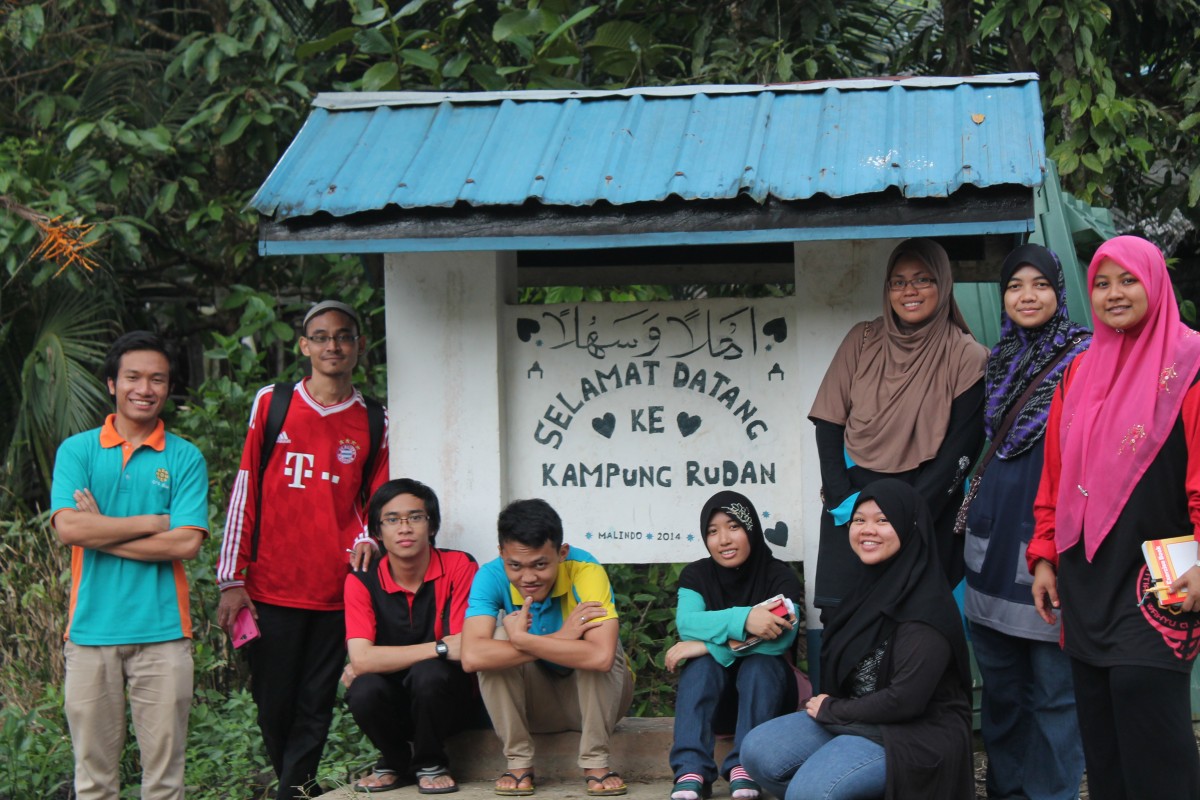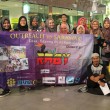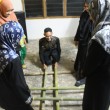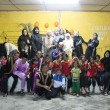By Muhammad Basir Roslan
Since childhood days I have been raised with strong religious knowledge. I am always grateful to my parents for ensuring that I receive good quality education on religious matters. This would ensure that not only will I be equipped with worldly knowledge but also knowledge on the Hereafter. Little did I notice that those years of training would have prepared me to be in charge of œfuneral management slot at Kampung Senah Rayang, Sarawak for an outreach programme with MISI Club of the International Islamic University Malaysia (IIUM).
Outreach to Desa Rayang Bumi Kenyalang (RABY) Series 3 was organised by MISI Club, IIUM, under the University Centre for Community Engagement (UCCE). This programme was the continuation of RABY Series 2 which was held in June. Among others, the programme was aimed at fulfilling the villagers’ basic needs, enriching their religious knowledge, and encouraging them to practice religion in their daily life.
In the long run, the programme is aimed at creating a strong bond with the villagers and to create awareness among the children on the importance of seeking knowledge. This is also a way to promote our university and to ensure that they pursue their studies in tertiary education and be professionally trained for the working world. Hopefully, this would provide them with better lives for themselves and their families.
This is my second time at the village. My first time there I was merely a reporter for the event. I did not know most of the committee members and I did not partake actively in any of the scheduled programmes. I was just an observer to witness their activities and to report whatever was interesting enough for my given assignment.
Little did I realise that the experience I went through had taught me more than writing articles. Overall, the experience was an eye-opener for me and absolutely life-changing! I loved the scenic views of the mountains, the serene nights from the peace and tranquility, and the very warm welcome from villagers as well as the great treatment received from the committees.
Kampung Rudan Rayang has truly engraved a special place in my heart. I missed all of those on my return to my home in Negeri Sembilan. Obviously, I was overjoyed when I received another offer to be their journalist for the third series of RABY. I did not really had a second thought about accepting the offer.
This time, for this third series, I was adamant to make more memories of the event compared to the first one. I promised myself to get to know the villagers more, to engage more with all of the committee members, and to write better stories than the first time I was here.
I was beyond surprise when I found out that they had given me a special slot to educate the villagers on œfuneral management. As honoured as I was to be given this opportunity and to actually apply my religious knowledge, I was just fearful to conduct a programme like this. This is mostly because I was fully aware that this is not an easy task and obviously it needs a lot of preparation especially on how to perform it properly. I cannot just simply go unprepared and do everything as I pleased and not be prepared with the necessary procedures and not being able to come out with answers to the questions that might be asked by the villagers.
œAre you okay, Basir? You look depressed, asked the Head of Dawah and Discipline (D&D), Nabil Fikri, who made the suggestion for me to be in charge of œfuneral management. He looked straight into my eyes, deep and curious the night we were planning for the programme. I think he saw the nervous look on my face and could feel how nervous I was when preparing the module for the next day.
œOh Nabil, I am just too afraid with what sort of questions that will be thrown by the villagers to me as they seem not knowing anything about ‘funeral management’. “Dont you think so? went my reply to his question as I was voicing out concerns for this programme.
According to our survey conducted before we started our programme, we found out that most of the villagers did not even know how to perform their obligatory prayers properly what more on ‘funeral management’. However, I calmed myself by reciting verse 30 of Surah Fussilat from the Quran, œDo not fear, nor grieve! And rejoice in the good news of heaven that you are promised!. I trust that Allah s.w.t. is with me in situation like this and I have full faith that if my intention is purely to educate the villagers, then He will guide me.
I did not take this task lightly. I took this responsibility very seriously as it was not only to educate the villagers but also to make them truly believe that it is for their own benefit. I understood the purpose of coming here and I also realised that I will become a religious leader for my own community in the future. Therefore, I told myself that by hook or by crook, I must be brave to conduct this slot.
I prepared myself with a lot of reading and asked my teachers at Darul Quran regarding the matter that was not clear to me prior to the programme. I might as well think that I was preparing myself for my final examination with excessive reading that I had to do. Even preparing for my examination was not really of this intensity.
On the day of the programme, I was nervous, scared, but excited at the same time to be sharing what I have been taught by my own teachers. As the villagers started to enter the surau, and the surau began to be filled with eager villagers and committee members to learn about œfuneral management, I began my opening remarks with the recitation of a verse of Quran regarding death. I reminded them all that no matter what happens, we cannot run away from death.
This worldly life is only temporary and that our eternal life is in the Hereafter. Hence, why it is so important for us do good deeds and stray away from doing anything that is against the teachings of Islam. This is so that we would be rewarded handsomely in the after-life and stay away from the Hellfire. To make it even more interesting, I told a story about how well Syeikh Ramadhan al-Buti ended his life.
Many things were shared and discussed with the villagers that day. We taught them how to manage a dead body, how to cleanse the body, how to prepare them before they are prayed upon, and also how to properly pray for the dead, the œsolat jenazah. I also prepared the step-by-step guide on how to perform a prayer for the dead on mahjong paper, and pasted it on the wall in the given surau so the villagers can refer in the future.
It must be mentioned here that we did not use a doll or a mannequin to perform this œfuneral management. However, we used an actual person! I think this added to the unforgettable memory of me conducting this slot. It is all thanks to Umarul Hakim, one of the committee members of the programme, who had volunteered himself to participate in the œfuneral management practical part the night before. His volunteerism came as a surprise to everyone as he is a very quiet person and did not talk much in the programmes before that. But we were slightly excited to be able to use an actual person as we believed that this would make the experience all the more realistic.
Alhamdulillah, all praise to the Almighty for making the programme run smoothly. It was truly incredible to see the number of villagers who were interested in learning how to manage a funeral according to the Islamic laws. It was even more humbling to see that the participants were the villagers who were mostly among the elderly. This just taught me that age is never the reason for you to stop learning especially when it comes to matters of your religious duties. Indirectly, this has motivated me more to succeed in my studies and to become a true scholar to benefit the general public in future.
Throughout the programme, they looked very interested in learning this course. I even noticed some of them writing down the content that was delivered. It was very enlightening to see them getting very excited and asking many questions regarding this œfuneral management. The sleepless night of preparations prior to this programme had not gone in vain as I felt that all our hard work had paid off seeing them keen on increasing their religious knowledge.
Other than praises to the Almighty, I truly believe that I deserve a pat on the back for having successfully conducted such a heavy task and to teach the villagers something that they may be of use to them in time of need. This really goes with the motto of MISI Club, œMISI in Touch, Ummah in Heart. ***



